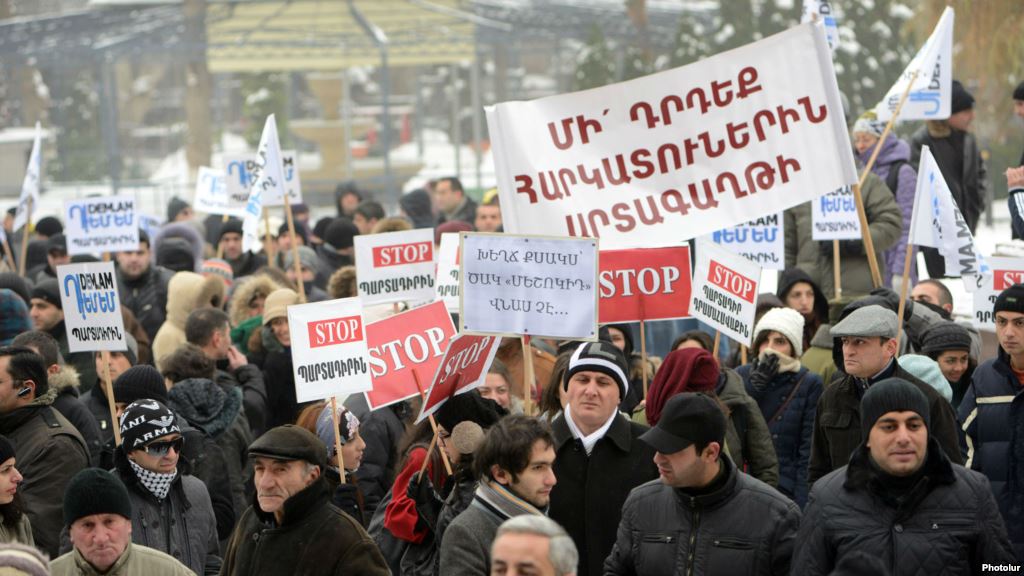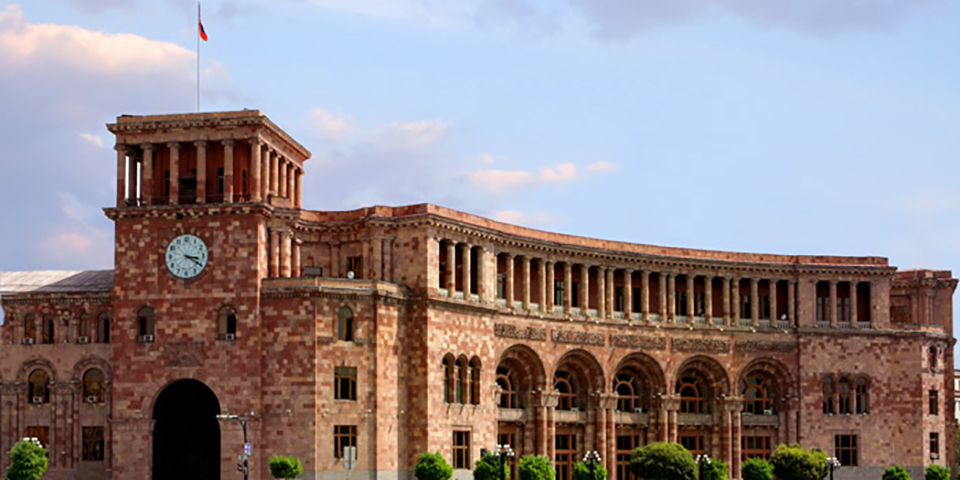YEREVAN — The Armenian authorities could face unprecedented social unrest this year unless they markedly improve the socioeconomic plight of the population, a leading pro-establishment pollster warned on Wednesday.
Gevorg Poghosian, who runs the Institute of Philosophy, Sociology and Law at the National Academy of Sciences, claimed that lingering hardship, coupled with increased freedom of expression, is making the situation in Armenia “explosive.” “Usually people start to act after freely expressing themselves,” he said, pointing to growing civic activism that translated into more anti-government street protests in 2013.
“The society has become quite active, finding ways of expressing its discontent,” Poghosian told RFE/RL’s Armenian service (Azatutyun.am). “And those ways are becoming more and more serious.”
“Bearing all this in mind, I have arrived at the conclusion that we must be prepared for very serious events in 2014. We are sitting on a bomb that could explode at any moment,” he claimed. He said this conclusion is based on surveys conducted by his state-funded institute.
Poghosian, whose pre-election opinion polls have long been dismissed as not credible by Armenian opposition groups, said public discontent in Armenia is fraught with serious unrest because it is not being defused by regime change through snap elections or sweeping personnel changes in the government. He claimed that the authorities in Yerevan are only trying to distract disgruntled citizens with new “scandals” involving senior officials. They are thereby only adding to the discontent, he said.
The government declined to immediately comment on Poghosian’s unusually stark warning.
Hakob Hakobian, the pro-government chairman of an Armenian parliament committee on social affairs, dismissed the pollster’s claims, saying that they are “very far from reality.” He insisted that greater freedom and pluralism on the contrary ease tensions within the Armenian society.
Hakobian also said that President Serzh Sarkisian’s administration is addressing popular grievances in earnest by steadily raising public sector salaries and pensions, boosting spending on other social programs, and carrying out political and economic “reforms.”
After years of double-digit GDP growth, the economic situation in Armenia worsened with the onset of the 2008-2009 global financial crisis. The Armenian economy has since been slowly recovering from the crisis.
According to the National Statistical Service (NSS), 32.4 percent of Armenians lived below the official poverty line as of late 2012, down from about 35 percent in 2011. The official poverty rate stood at 24 percent in 2008.










